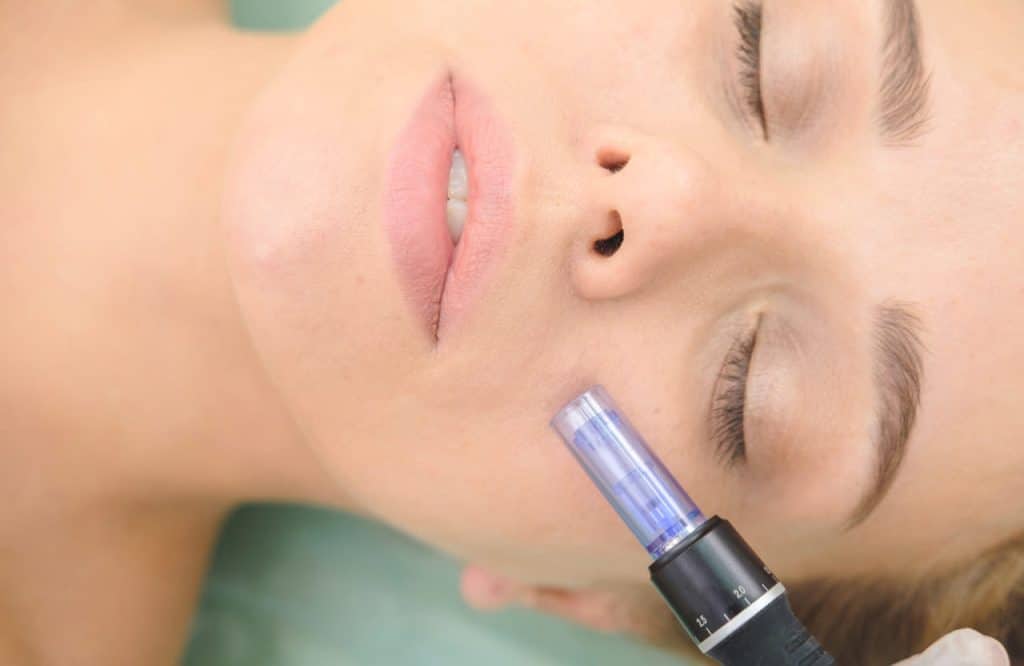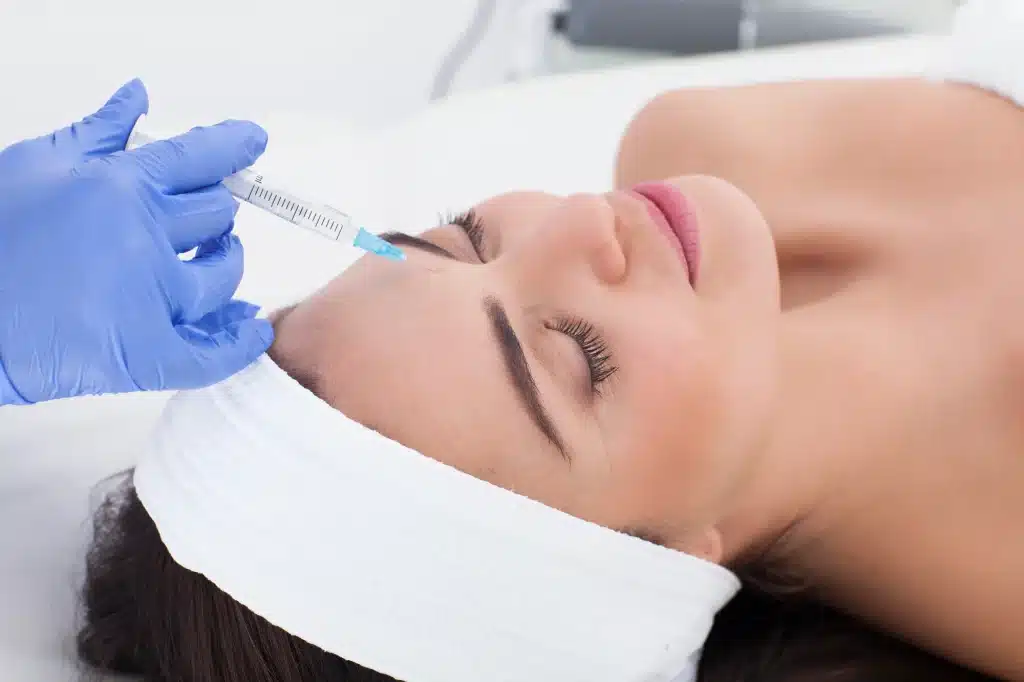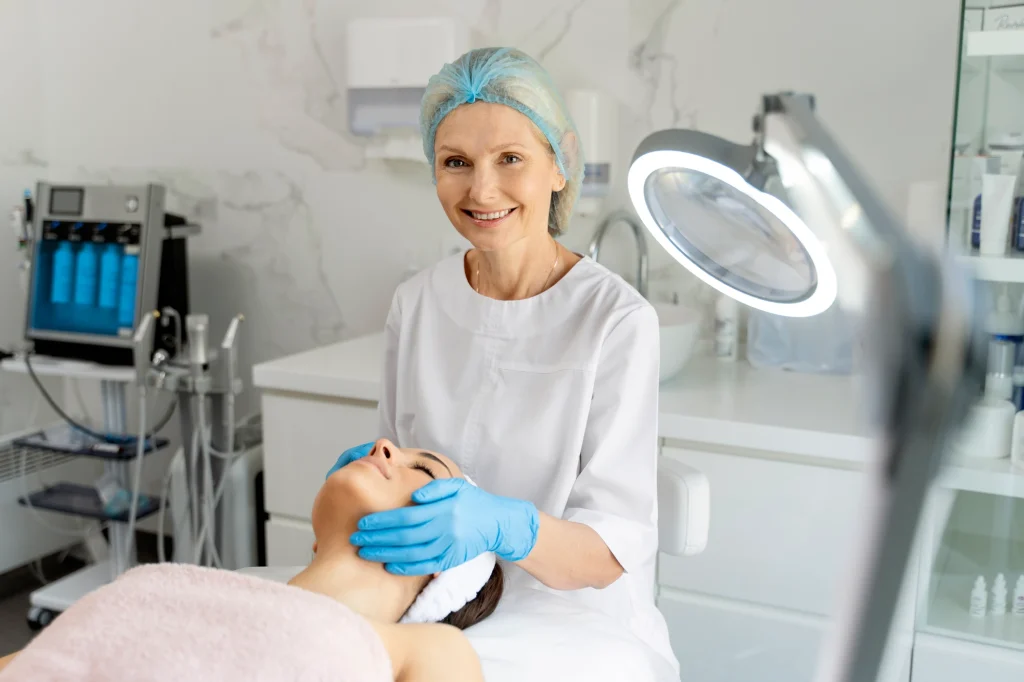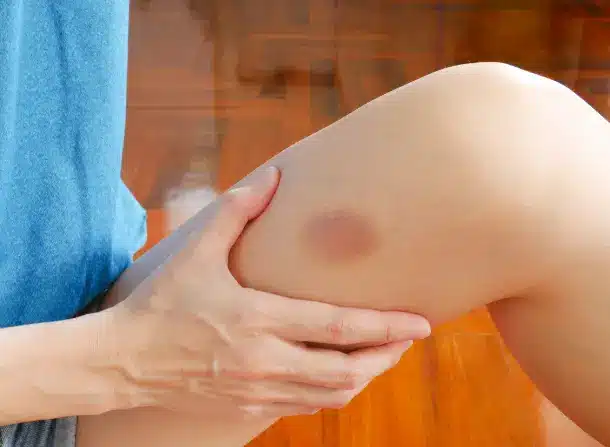Mesotherapy for the Face
Face mesotherapy is an intriguing fusion of medical science and cosmetic innovation, offering a non-invasive route to skin rejuvenation and aesthetic enhancement. This approach involves precisely administered injections of customized preparations into the skin’s middle layers, providing an appealing alternative to surgical methods. Notably, this technique achieves enduring outcomes without the discomfort often associated with surgical procedures.
In this comprehensive exploration, we’ll embark on a journey into the intricacies of facial mesotherapy. Our article will shed some light on its practical application, possible advantages and drawbacks, contraindications, and potential side effects.
What Is Mesotherapy for the Face?
Mesotherapy is the correction and prevention of skin defects by injecting preparations into its middle layers that slow down the aging processes and restore the dermis at a cellular level. This cosmetic procedure is an excellent and painless alternative to plastic surgery, providing long-lasting effects.
How Is Mesotherapy Applied?
Applying mesotherapy begins with an initial physical examination to assess the patient’s condition. Following this examination, a precise diagnosis is established to identify the specific discomfort or issues the patient is facing. Once the diagnosis is confirmed, an anesthetic cream may be administered to numb the intended application area.
For the actual procedure, disposable needles are utilized for each patient, and the solutions best suited to the individual’s needs are meticulously applied to the targeted region. In cases where frequent treatments are necessary, a mechanical injector may be employed to simplify the injection process.
A skilled physician administers an angled injection into the middle skin layer at the site requiring treatment. Small quantities of the solution are delicately introduced into this injection site.
The number of mesotherapy sessions can be tailored to the specific requirements of the affected skin area. This outpatient treatment method eliminates the need for dressing post-application. In the absence of side effects, patients can seamlessly resume their regular routines following the procedure.
Indications for Facial Mesotherapy
Mesotherapy on the face involves the injection of specific substances into the facial skin to address various aesthetic concerns and promote skin rejuvenation. Here are the indications for facial mesotherapy:
- Skin Rejuvenation: Facial mesotherapy can help rejuvenate the skin by stimulating collagen and elastin production. It’s indicated for patients with mild to moderate signs of aging.
- Skin Hydration: This technique is used to improve skin hydration and moisture retention. It’s particularly beneficial for individuals with dry or dehydrated skin, as the injected substances can enhance the skin’s ability to hold moisture.
- Even Skin Tone: Facial mesotherapy can assist in achieving a more even skin tone by targeting areas with hyperpigmentation or sunspots. The injected substances, such as vitamin C and other skin-brightening agents, can help reduce pigmentation irregularities.
- Acne Scarring: Mesotherapy can be employed to improve the appearance of mild acne scars by promoting collagen production and tissue regeneration. It’s often used as part of a comprehensive acne scar treatment plan.
- Dull Complexion: Individuals with a dull complexion can benefit from facial mesotherapy. The injected substances can enhance skin vitality and radiance, resulting in a healthier and more vibrant appearance.
- Preventive Anti-Aging: Mesotherapy treatment for the face can be considered to proactively address signs of aging before they become more pronounced. Stimulating collagen and elastin can help maintain the skin’s youthful appearance.
- Fine Lines and Wrinkles: Mesotherapy can target specific areas with fine lines and early wrinkles, providing a subtle smoothing effect. It’s suitable for patients seeking non-surgical approaches to address these concerns.
- Skin Tightening: For patients with mild skin sagging, facial mesotherapy can help tighten and firm the skin by promoting collagen synthesis and improving overall skin structure.
Preparing for Facial Mesotherapy
It is advised to follow several essential guidelines to achieve the best possible effect from a mesotherapy procedure:
- Pre-Procedural Preparations:
- Refrain from consuming anesthetic non-steroidal anti-inflammatory drugs for at least three days before the procedure.
- Avoid the application of makeup on the day preceding the scheduled mesotherapy session.
- Medical Considerations:
- If a herpes infection is present, it is essential to inform the attending beautician. Mesotherapy may occasionally trigger the exacerbation of herpes symptoms.
- Enhancing Mesotherapy Outcomes:
- Enhance the potential benefits of mesotherapy injections on the face by undergoing a series of superficial peeling treatments on multiple occasions prior to the scheduled session.
- Timing of the Procedure:
- It is advisable to avoid scheduling mesotherapy sessions during menstruation, as this may impact the procedure’s effectiveness and potential outcomes.
With these professional recommendations, patients can maximize the efficacy and safety of their meso facial experience.
Advantages and Disadvantages of Facial Mesotherapy
The widespread popularity of the procedure stems from its numerous advantages. These include:
- Versatile Aesthetic Solutions: Mesotherapy offers a versatile approach to addressing a spectrum of aesthetic concerns and is equally applicable for both treatment and preventive purposes.
- Broad Coverage: The method’s applicability extends to various facial and body regions, enabling tailored treatment according to specific needs.
- Enhanced Bioavailability: Mesotherapy solutions boast high bioavailability, ensuring superior absorption into tissues compared to conventional cosmetics.
- Customized Formulations: The ability to personalize cocktail formulations based on individual circumstances provides a distinct advantage.
- Minimal Constraints: Age considerations are minimally restrictive, accommodating a wide range of individuals.
- Swift Recovery: The procedure entails brief recovery times, with any injection-related marks vanishing within a few days.
- Sustained Results: The effects of mesotherapy are enduring, spanning from 6 months to 2 years, depending on the cocktail type.
However, like any medical procedure, facial mesotherapy does have its downsides. These mainly involve the potential for minor skin reactions following the sessions. In the short period right after the procedure, patients might experience slight bruising or temporary swelling in the treated area. Moreover, achieving the desired outcomes requires multiple sessions, and ongoing maintenance appointments are necessary to sustain and enhance the effectiveness of meso face treatment.
Contraindications
The procedure is not carried out on patients:
- If there are blood coagulation disorders;
- With malignant tumors present, regardless of their location;
- With inflammatory foci or skin rashes in the area of injection;
- During pregnancy, breastfeeding;
- With acute infectious diseases;
- Having an exacerbation of chronic pathologies.
Potential Side Effects
The same as with any other medical procedure, mesotherapy for the facial features carries a potential for side effects. However, these are typically of the temporary kind, and do vary amongst individuals. Some patients might not even experience adverse effects. Certain product variants used in mesotherapy have been known to trigger an allergic reaction for some individuals. To determine allergies prior to treatment, a skin sensitivity test should be performed 24 hours before the session, mitigating any risk. Normal side effects that might occur following a mesotherapy procedure include:
- Nausea;
- Fatigue;
- Headache;
- Numbness;
- Increased skin sensitivity;
- Itching and burning sensations on the skin;
- Skin rash;
- Skin bruising.
Individuals with particularly sensitive skin might also experience reactions such as skin rash and eruptions. Additionally, in some cases, darker scars may develop in the treated areas following mesotherapy application. It’s essential for individuals considering facial mesotherapy to be aware of these potential side effects and discuss any concerns with their healthcare provider prior to undergoing the procedure.
Conclusion
Facial mesotherapy offers a compelling blend of medical expertise and aesthetic advancement. Through precisely targeted injections, this non-invasive approach presents a viable option for skin rejuvenation and cosmetic enhancement. Its versatility, minimal recovery time, and enduring effects make it a promising alternative to surgical procedures. Additionally, there are a wide range of products available, such as Belotero.
However, it’s crucial to consider potential drawbacks, such as temporary skin reactions and the need for multiple sessions. By weighing these factors and collaborating closely with healthcare professionals, patients can make informed choices to achieve the desired facial mesotherapy results while prioritizing their safety and well-being.
FAQ
Is mesotherapy good for the face?
Yes, mesotherapy can be beneficial for the face as it promotes skin rejuvenation, hydration, and even skin tone and addresses concerns like fine lines, wrinkles, and acne scars. It offers a versatile and personalized approach to enhancing facial aesthetics and skin health.
How long does mesotherapy last in the face?
The duration of mesotherapy face injections ranges from six months to two years, depending on individual factors, the specific cocktail used, and the treated areas. Regular maintenance sessions may be recommended to sustain and optimize the results over time.
How often should your clients get mesotherapy?
The frequency of mesotherapy sessions for clients can vary, but an initial series of treatments is often recommended, spaced 1 to 2 weeks apart. After the initial series, maintenance sessions are typically scheduled every 1 to 3 months to sustain and optimize the results. The exact schedule depends on the goal, skin condition, and the specific treatment plan.





















